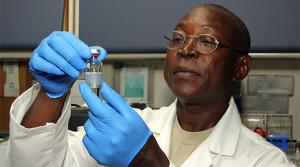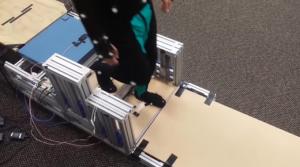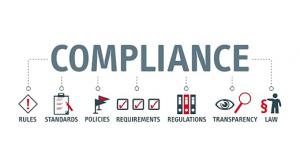All Features

Dirk Dusharme @ Quality Digest
Our Oct. 27, 2017, episode of QDL looked at Ford, autonomous cars, and changes to FDA compassionate use rules.
“Ford Plans $14B in Cost Cuts as Part of New CEO’s Strategy”
Ford Motor Co’'s new CEO plans to cut $14 billion in costs, drop some car models, and focus the company’s resources on…
Scott Gottlieb
The FDA has a long history of supporting patient access to investigational new treatments. This includes working with drug and device companies through the clinical trial process that may lead to FDA approval of the treatment. We also offer expanded access programs that provide investigational…

Mike Richman
We cover a wide range of topics on QDL most weeks, but our latest episode, from Friday, Oct. 20, 2017, provided a steady drumbeat of technological detail. Here’s what we chatted about:
“Energy Harvested from Evaporation Could Power Much of U.S., Says Study” Renewal sources of energy like solar…

Ken Kingery
The first in-car measurements of exposure to pollutants that cause oxidative stress during rush-hour commutes has turned up potentially alarming results. The levels of some forms of harmful particulate matter inside car cabins was found to be twice as high as previously believed.
Most traffic…

Jon Speer
How confident are you when it comes to design validation? Does this always involve clinical evaluation, or not? We’ve found that, like many other terms in medical device development, the two can end up getting confused. When do you use one or the other?
There tends to be a lack of clarity out…

Dirk Dusharme @ Quality Digest
Our Oct. 13, 2017, episode of Quality Digest Live looked at edge computing for natural disasters, medical records, and zero defects.
“New Research May Improve Communications During Natural Disasters”
Could edge computing help communications during disasters?
“How Health Care Leaders Should…

Ann Cleland
|nids=22799|quantity=1-->
If your hospital or clinic uses a Windows 7-based version of a Siemens PET/CT or SPECT system, it could be vulnerable to attack by a relatively low-skill hacker, according to a July 26, 2017, security advisory from the company.
The Industrial Control System Cyber…

Anna Abram
We’re at a moment of extraordinary opportunity to improve public health. New innovations are giving us fundamentally better ways to address disease. Some of the same technology is providing consumers with a broader selection of foods that can improve peoples’ diets and products that can expand…

Patricia Morrill
Do all employees in healthcare understand how their jobs link to patients in some way? If they do, then they are more likely to know the importance of service excellence.
Does every leader, physician, and employee know the statistic that preventable medical errors are the third leading cause of…

Dirk Dusharme @ Quality Digest
Our Sept. 8, 2017, episode of QDL examined a different way to conduct clinical trials, discussed fixing problems before they occur, and in the aftermath of Hurricane Harvey looked at resources for building a more resilient and sustainable infrastructure.
“A Better Way to Design Clinical Trials”
A…

Greg Anderson
In part one of this series, I described the Centers for Medicare and Medicaid Services (CMS) Innovation Center and its mission to test innovative payment and delivery models, and to implement the Medicare Access and Children's Health Insurance Program (CHIP) Reauthorization Act (MACRA) Quality…

Stephen Chick
Value has found a place at the heart of healthcare innovation. For money-conscious governments and other actors in the system, it’s not enough that a new treatment be beneficial and safe. It also needs to be cost effective.
This emphasis on value is even changing the profile of the pharmaceutical…

Thomas Cronin
We humans are uncommonly visual creatures. And those of us endowed with normal sight are used to thinking of our eyes as vital to how we experience the world.
Vision is an advanced form of photoreception—that is, light sensing. But we also experience other more rudimentary forms of photoreception…

Amie Whittington
As discussed in my previous article, the Internal Revenue Service (IRS) is ramping up compliance audits of governmental hospitals that are exempt under section 501(c)3. However, the IRS isn’t the only one monitoring your tax-exempt hospital. Other organizations have started policing these…

Dirk Dusharme @ Quality Digest
Our August 11, 2017, episode of QDL looked at the role of technology in after-market service, stairs that help you up, Fidget Cubes, and more.
“Climbing Stairs Just Got Easier With Energy-Recycling Steps”
These stairs actually help you go up.
“The Curious Case of the Fidget Cube”
How a product…

Greg Anderson
The Affordable Care Act created the CMS Innovation Center to allow Medicare and Medicaid programs to test innovative payment and delivery models that improve patient care and lower healthcare costs.
The Innovation Center organizes models into seven categories. Some models are based on payment…

Gerald Friedman
It’s easier than ever to buy stuff. You can purchase almost anything on Amazon with a click, and it is only slightly harder to find a place to stay in a foreign city on Airbnb. So why can’t we pay for healthcare the same way?
My research into the economics of healthcare suggests we should be able…
AssurX
Three recent warning letters from the Center for Device and Radiological Health (CDRH) offer a glimpse into ongoing medical-device inspection investigative focus. CAPA noncompliance is a top concern.
Inadequate corrective actions
An FDA investigation was conducted from January to February 2017 at…

Scott Gottlieb
It is incumbent upon the U.S. Food and Drug Administration (FDA) to ensure that we have the right policies in place to promote and encourage safe and effective innovation that can benefit consumers, and adopt regulatory approaches to enable the efficient development of these technologies. By…

InfinityQS
On Jan. 1, 2017, Philadelphia became one of the first U.S. cities to pass a tax ($0.15 per oz) on sugary drinks, including artificially sweetened beverages, such as diet soda. In California, San Francisco, Albany, Berkeley, and Oakland have joined Philadelphia in this initiative, as well as…

Claire McCluskie
With ISO 13485:2016—“Medical devices—Quality management systems—Requirements for regulatory purposes” published and being implemented, many medical device customers are experiencing some uncertainty about the effect that one of the standard’s key changes might have on their business: computer…

Amie Whittington
Is your governmental hospital exempt under Section 501(c)3? If you have a 403(b) plan, the answer is yes, but even if you don’t, you need to check.
The Internal Revenue Service (IRS) is ramping up compliance audits of governmental hospitals that are exempt under 501(c)3 (dual status). The…

Ian Haydon
There’s a revolution happening in biology, and its name is CRISPR. CRISPR (pronounced “crisper”) is a powerful technique for editing DNA. It has received an enormous amount of attention in the scientific and popular press, largely based on the promise of what this powerful gene-editing technology…

Erin Connelly
For a long time, medieval medicine has been dismissed as irrelevant. This time period is popularly referred to as the “Dark Ages,” which erroneously suggests that it was unenlightened by science or reason. However, some medievalists and scientists are now looking back to history for clues to…

AssurX
The Advanced Medical Technology Association (AdvaMed) wants the U.S. Food and Drug Administration (FDA) to understand that medical device manufacturers need clarity on the FDA’s heightened focus on real-world evidence (RWE).
Responding to the Center for Devices and Radiological Health’s (CDRH’s…